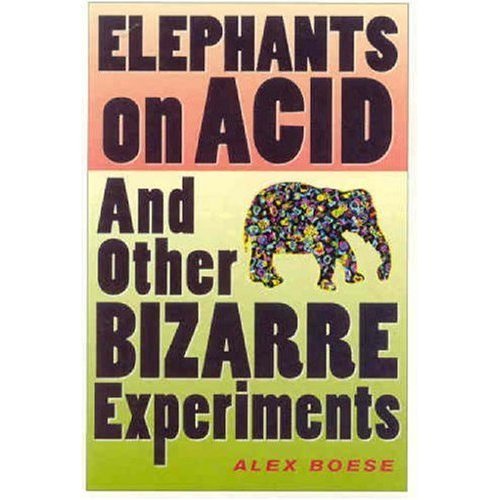Do Casinos Pump In Oxygen
As we said, some fellow gamblers believe that casinos pump extra oxygen into their halls. This is a topic that has been discussed even by the BBC in their article about psychology of super casinos. In a nutshell, many sources claim, and some people believe, that oxygen (O2) is pumped in some casinos to keep players awake for a longer time. Casinos pump in pure oxygen so that you stay awake and play longer. While they may blast state-of.
Do Casinos Pump Oxygen Into the Air?
The belief is that casinos add oxygen in the ventilation system to keep players awake longer. If a player doesn't get tired, chances are high that the person will keep playing. Some people say the oxygen is added to the air to make players feel a sense of euphoria whether they win or lose. If they're happy, they'll keep playing. It's also false. Most companies sell the C, D, or E tank sizes which hold less than an hour's worth of oxygen for one person. They cost hundreds of dollars. You'd need hundreds of tanks to boost the oxygen in a casino enough for it to change the O2 saturation in the air. The cost of pumping enough oxygen into a casino would be crippling.Do Casinos Watch You on Security Cameras to Pick Who Wins a Slot Jackpot?
Casinos do have security cameras. They're not for spotting winners of slot machines. Slot machines are computerized for fairness. Regulations are in place to make sure prizes are awarded completely at random. No player is favored over another. No one is watching tables or machines and saying, “That machine hasn't had a winner in a week, it's time to hit a button and trigger the jackpot.” Security cameras are there for security purposes. They're used to watch for people who might be trying to steal or cheat. Those people might be players, but the security cameras can also be used to monitor the staff.Should Players Skip a Slot Game That Just Had a Winner?
A lot of people think if you play a slot machine that just had a winner, there's no way you'll win. Going back to the slots being computerized, there is no set pattern on when a winner will be chosen. You could play a game, win the jackpot, spin again and win the jackpot again. The one thing to watch are games that have to award the jackpot but a certain amount. Some slot games have notices that the progressive jackpot will be awarded by the time it reaches $20,000. If you see a game that's reaching this point, you know the jackpot will be awarded soon. It's still not a guarantee that you'll win, but it's getting closer to a winner being randomly selected.Do Casinos Not Have Clocks or Windows to Keep You Playing Longer?
Casinos generally do not put clocks on the wall. It's not to keep you playing longer, but if you do, the casino is not going to come and tap you on the shoulder and say you've been playing for an hour. It's up to you to ask for the time or find a clock on your own. You'll also notice that casinos don't often have a lot of windows. This is also a way casinos can keep players involved with the games. If you can't see the sunrise and haven't asked what time it is, hours could have passed without you realizing it. There's another reason why casinos don't have a lot of windows. The glare on a video slot machine can make it hard for players to see what's going on. If you've ever tried to use your computer or tablet outside in bright sunlight, you'll know how hard it is to see the screen. The same applies to video casino games. These are just a few of the myths people hear about casinos. Now that you know oxygen is not pumped into casinos, feel free to visit a land-based casino and enjoy the games. Even better, play casino games online and avoid having to drive hours to a casino near you.Casino 'mind tricks' will be tested at artist Kate Brinkworth's exhibition |
The shortlist of towns vying to build the UK's first 'super-casino' - and 16 smaller venues - has been revealed, and competition is fierce.

Anyone who has been to Las Vegas will know that, once through the doors, casinos exude a curiously artificial aura. According to Kati St Clair, a business psychologist, the aim is to induce a trance-like state in gamblers.
'Casinos make you feel intimate, enclosed, euphoric; you're in a suggestible state in which you want to stay where you are, continuing to do what you are doing,' she says.

But how can a casino be designed to encourage people to gamble more and for longer?
Playing the tables in Las Vegas can be a disorienting experience, thanks, in part, to a lack of clocks and natural daylight. Casinos can even simulate daylight during the dark hours to lull players into remaining at the tables and slot machines, all the time parting with their cash.
Do Casinos Pump In Oxygen Concentrator
UK rules: British casino operators will not be allowed to get away with such tactics. The proposed Gambling Act says customers must be aware of how much time - and money - they have spent gambling, and make sure that breaks in play are encouraged.

The soundtrack of a casino will be familiar to anyone who has spent time in a supermarket or shopping mall, and it's used to similar effect.
'Casinos are rather womb-like,' says Ms St Clair. 'Almost always the colour is red and the music is mild and on a continuous loop, rather than individual songs. All of this contributes to the trance-like state of a gambler. Nightclubs use the same sort of tactics.'
UK rules: There appear to be no rules to restrict the sort of music played in British casinos - a matter of regret, perhaps, to those who dislike piped music but are fond of a flutter.
One tactic used in some American casinos is to offer free alcoholic drinks and easy grazing snacks to keep punters betting. Those on a winning streak may have drinks brought to them so as not to interrupt play.
Do Casinos Pump More Oxygen
UK rules: This type of inducement will be frowned on in Britain. The UK's Gambling Act will rule out using alcohol to encourage people to gamble. But energy drinks are likely to be on the bar menu, to help keep gamblers stimulated.
No ordinary air-con for US casinos, where extra oxygen may be pumped in to help players stay alert. The manufacturer of oxygen boxes used in Las Vegas casinos has recently launched the product here.
And pheromones have reportedly been released from US machines to encourage aggressive gambling.
UK rules: Culture Secretary Tessa Jowell has said such psychological trickery would be banned in Britain. 'We'll simply not allow any tricks which people are subjected to unawares and which increase the risk of problem gambling,' she said.
A Gambling Commission spokeswoman says chemicals to falsely enhance confidence will not be allowed. 'If we see it, we can levy unlimited fines upon them.' But these are not banned per se - hence an exhibition in London's Mark Jason Gallery next week, which will be using 'mood influencing' aromas, and other casino-style 'mind tricks' to see if art viewers can be turned into art buyers.
There's nothing like a near-miss to encourage a gambler to keep pumping coins into a slot machine or laying their chips on the table.
Not only can gaming machines be set to provide a certain number of near misses, these have become more sophisticated in the past decade so as to make a near-miss look even more tantalising.
'A near-miss causes a gambler to over-estimate their chances of winning,' says Dr Luke Clark, a Cambridge University psychologist. 'If their horse finishes second, or in a casino they watch two cherries come up on a slot machine and then see the third almost click into place, they'll keep playing. A problem gambler will keep playing for a third as long again.'
And when a gambler feels their skill can influence the outcome - throwing the die, say, or choosing lottery numbers - a feeling of control develops that keeps them gambling longer.
'There are subtle ways that casinos and slot machines can introduce near misses and perceived skill that encourage people to gamble,' Dr Clark says.
UK rules: Draft legislation says the rules of games, odds or house edge - a casino's in-built advantage - average return to the player, and dispute and complaints procedures must all be clearly displayed.
Add your comments on this story, using the form below. Casinos already have no clocks in them. No windows and all dealers are forbidden from wearing watches, so that if a customer asks the time you don't know. There is currently a table service for all non-alcoholic drinks which are free. The alcohol needs to be kept away from the tables, not only to protect gamblers from getting into debt but also the dealers. If you have just lost £500 in ten minutes and you have also managed to get drunk doing it, how long before you take it out on the dealers?
Ellen, London
Tosh! Of course casinos seek to make customers comfortable. What leisure venue doesn't? Casinos are not invariably red. The music isn't a loop in any casino I worked in - there were individual songs. No music, no atmosphere - ask a customer. Simulating daylight when its dark outside? Used in Vegas in shopping malls outside gaming areas.
Geoff, Brighton
What about the loyalty cards? From them they know all about regular gamblers, which slot machine they prefer, what they eat and drink etc. Then in the post they get lots of vouchers for free meals, free transport, free entertainment, free drinks, special prize competitions, free hotel rooms. It is those that turn regular gamblers in to problem gamblers.
Cllr Steven Bate, Blackpool, UK
Banks have recently adopted a more comfortable atmosphere too with background music, soft lighting, soothing colours and some are also removing clocks...
Cameron, Ayrshire
The BBC may edit your comments and not all emails will be published. Your comments may be published on any BBC media worldwide.